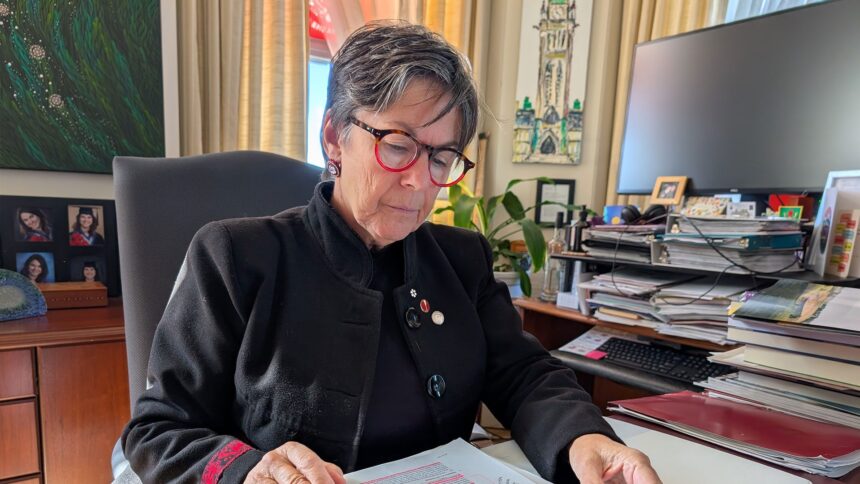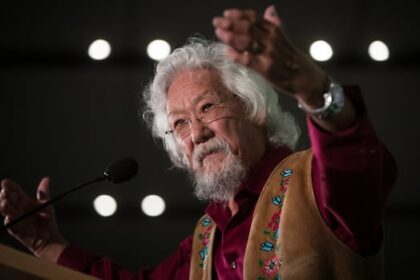An independent senator says the Liberals should concentrate on providing programs that prevent crime rather than introducing legislation to reform the bail system by “politicizing” the issue.” “Anybody working in the community and including many police officers, is saying the issue is when we’re picking up people, they’re often people with mental health issues, with addiction issues,” said Sen. Kim Pate (Ontario), who before being named to the Senate by former prime minister Justin Trudeau, was the long time head of the Association of Elizabeth Fry Societies, an organization that lobbies for justice for incarcerated women. “They’re homeless. And if we had anywhere else for them to go, that’s where we would want them to be going. But they keep accumulating, they go into custody.” On Oct. 23, Justice Minister Sean Fraser introduced the Bail and Sentencing Reform Act, legislation that aims to change who gets bail and how people are sentenced under certain circumstances. According to the government, they’re trying to make it harder to get bail for a variety of offences, including vehicle thefts, extortion and breaking and entering. The bill would impose a reverse onus on bail for certain offences. That would move the burden of proof from the prosecutor to the accused, meaning they would have to justify being granted bail. The Criminal Code already has a reverse onus for bail in place for many serious offences, including murder. “We are going to change the criminal law to ensure that the bail system is not viewed as some get out of jail free card. We’re going to ensure that bail hearings treat public safety as a paramount concern,” Fraser said at a press conference in Ottawa while introducing the bill. “When risks to the public cannot be managed, offenders will be detained.” Minister of Justice, Attorney General of Canada and Minister Responsible for the Atlantic Canada Opportunities Agency Sean Fraser speaks during a press conference in Ottawa on Thursday. Photo: Spencer Colby/The Canadian Press. But Pate said keeping people in remand, denying bail and handing out stiff sentences doesn’t make sense if the issue is poverty. “It’s a minority Parliament and so the government wants to be seen to be acting on issues that people are raising,” Pate said. “We’re all concerned. I’m concerned at the number of people who are homeless and the rising issues around mental health. “But I want to see the resources go into housing and health care and supports, including income supports that will help alleviate those conditions, not responses that actually make those conditions worse by maybe temporarily removing them from the public eye, but don’t actually achieve anything. “We keep going to the most expensive, least effective system, most expensive in terms of human and social cost, but also financial cost, the amount of money that it will cost to put in place more prison beds, more people being held longer in custody if those resources were invested in communities, in particular in First Nations, Métis and Inuit communities, we would see far better results.” The opposition Conservative Party is pushing hard for the reform bill C-14 to go ahead. In an email to followers, the Conservatives list of demands include wanting to, “Amend Canada’s Criminal Code to make bail more restrictive for repeat violent offenders, particularly those charged with firearms offences, intimate partner violence, and serious violent crimes; repeal Bill C-5 which eliminated mandatory minimum sentences for serious violent crimes and repeal the so-called principle of restraint enacted by Bill C-75 which requires judges to release accused offenders “at the earliest possible opportunity” under the “least onerous conditions. “Let’s stop the revolving door, fix the broken Liberal bail system, and keep repeat violent criminals behind bars,” the Conservative email said. Under the proposed law, a number of aggravating factors are being added that will increase the amount of time an offender is sentenced to. They include “repeat violent offenders with a previous conviction for a violent offence within five years; offences committed against victims who are first responders; organized retail theft (e.g., robbery, break and enter, possession of property obtained by crime).” ‘Laws that deepen inequality’ But a lawyer with the Indigenous Bar Association says the bill is only going to make matters worse for Indigenous offenders. “We already know that Indigenous people are significantly overrepresented in Canadian incarceration facilities,” Rheana Worme, a criminal defence lawyer from Kawacatoose First Nation in Treaty 4 and practicing in Saskatoon. “Indigenous women make up 50 per cent of the federal prison population and Indigenous youth make up 40 per cent of all youth admissions in provincial and territorial correctional facilities.” “The practical application of this bill is that we are going to see more Indigenous people behind bars, not because they’re dangerous, but because they can’t meet bail conditions that were never designed for Indigenous people, for remote communities, or for under-resourced communities. “For example, in communities where there is no bail supervision or safe housing, reverse onus becomes essentially a guarantee that they’ll be detained. And we know that detention leads to more guilty pleas from innocent people who are just trying to get home. People when they’re held in remand, often plead guilty to crimes they didn’t commit just to get out.” Worme says like other people in Canada, she shares the goal of having safer communities. But she says she doesn’t see justice being served “by laws that deepen inequality.” “I think the main concern is the expansion of reverse onus provisions,” she says. “What reverse onus means is basically typically the law presumes an accused is innocent until the Crown proves beyond a reasonable doubt that they’re guilty and this principle is supposed to be applied to all elements necessary for conviction, including bail or show cause hearings. However, reverse onus the reverse onus clause alters this dynamic by requiring the accused to demonstrate why detention is not justified. “The issue with the reverse onus is it creates scenarios in which a person’s charter-protected rights to presumption of innocence are being infringed upon. Now, typically, the fringe is seen as justifiable because the reverse onus clause is currently used for circumstances of heightened public safety concerns, such as offenses related to firearms. Also murder or attempted murder, and instances where the accused is already on release and commits another indictable offense.” The bill has a long way to go before receiving royal assent. It’s currently scheduled for second reading in the House of Commons. From there, it will go to a House of Commons committee before being passed to the Senate. Continue Reading
Were all concerned: Senator says Liberals bail and sentencing reform bill ignores bigger issues

Leave a Comment










